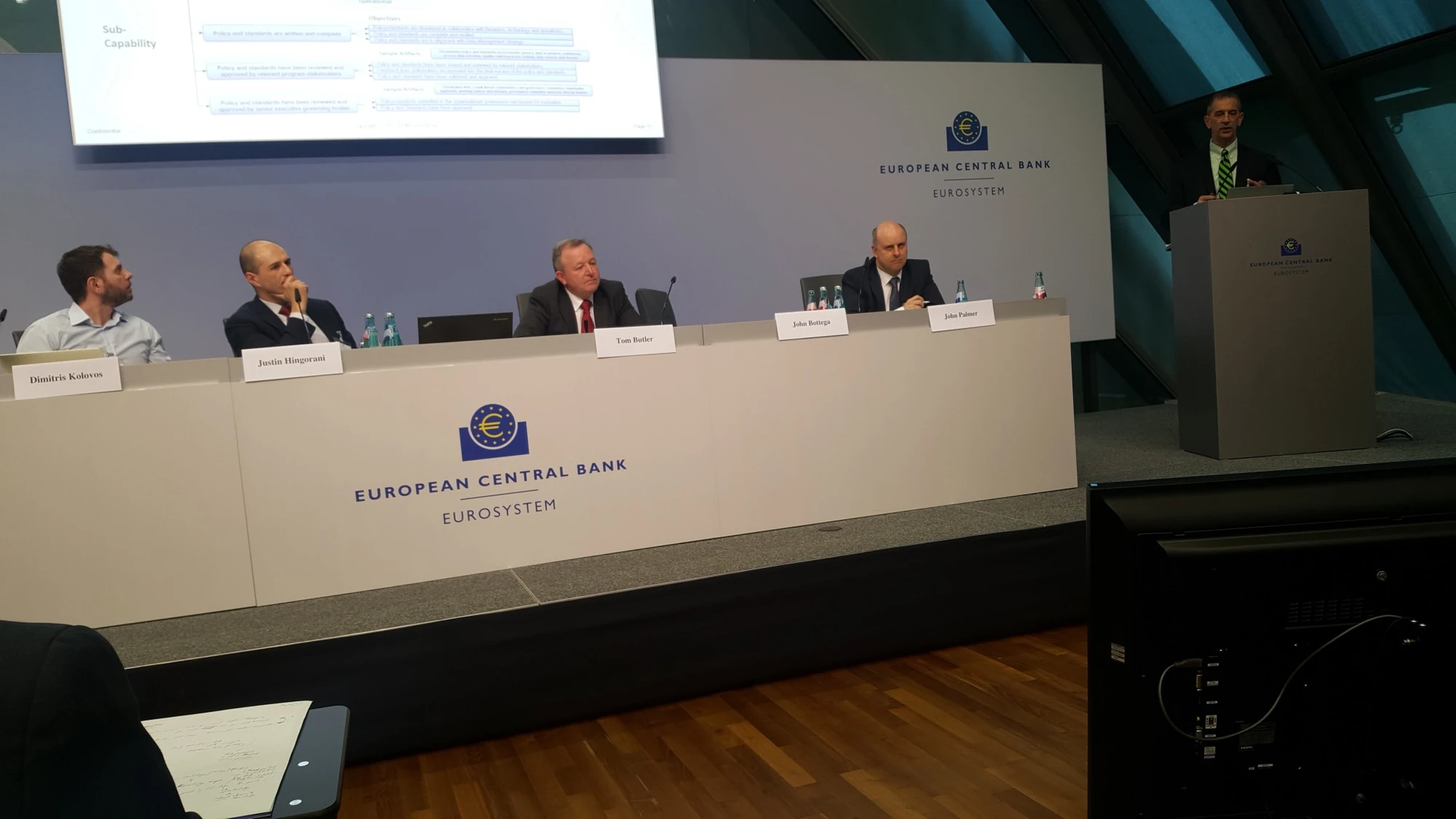Presented at: Setting Global Standards for Granular Data: Sharing the Challenge - Frankfurt, 28-29th March 2017 - hosted by the OFR, ECB and BOE
We are frequently battered by new terminology and acronyms both at work and in life.
Terminology that is not well known nor widely shared, or inconsistent, can cause lots of frustration. However, the more terms are used and result in a clear action, the more helpful they become.
Associating a word or phrase with a resulting action helps embed its use in an unambiguous way. A shared, actionable vocabulary (or what software engineering refers to as domain specific language) can be critical for working with granular or dimensional data.
Throughout 2016 JC Chapman and the University of York worked together on a Knowledge Transfer Partnership (sponsored by Innovate UK and JC Chapman). The project took data quality as a use case and built an open architecture to enable domain experts e.g. a credit risk analyst, market risk analyst etc. to easily develop and exchange business rules in a domain specific natural language. Rules can then be executed on any target data platform even if its data structure is different.
The open nature of the architecture is in reference to the open API that allows a user to add any desired vocabulary, extend the formats in which rules can be exported and create new adapters so the rules can be executed on any desired data platform.
Turning Words into Actions
An open architecture provides automation end-to-end for:
- Writing rules incorporating any terminology;
- Sharing rules for others to use in any format; and
- Running rules against any platofrm.
If I am going to ask for granular data on say, mortgages, it will be an exercise in frustration if I can’t specify whether I am referring to lending on a commercial or residential property, or if I want data on buy-to-let, or subprime, and if I want subprime, what do I actually mean by that?
But beyond just defining a word or phrase, the more a set of domain specific terms are used and result in a clear action, the more helpful they will become. So, the more I can associate that word with a resulting action, the more embedded that domain terminology becomes. A shared, actionable vocabulary (or what software engineering refers to as domain specific language) is critical for working with granular or dimensional data.
There are a multitude of different initiatives, models and languages that exist to guide and assist when it comes to gathering and understanding data…….yet still a huge amount of frustration exists.
The goal of our project was to clearly specify and communicate a set of words and enable those words to be turned directly into actions.




